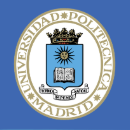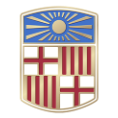Detailed introduction of the University of Cádiz:
Introduction and Overview
Geographical location: Located in the province of Cádiz in the autonomous region of Andalusia, Spain, the main campus is in Cádiz City, and there are also campuses in Jerez, Porto Real, Algeciras and other places.
Student size: There are about 22,000 students.
Degree courses: 70 undergraduate majors, 51 official master's degrees and 18 doctoral degrees are offered.
History and establishment time
Its history can be traced back to the East and West Navigation College (Colegio de Pilotos de los Mares de Levante y Poniente) in the 15th century.
The predecessor of the medical school was the Royal Naval Surgery College established in 1748. It was the first institution in Europe to combine medicine and surgery in one school.
On October 30, 1979, the University of Cádiz was officially established.
School strength
Teaching resources: In the 2007/2008 academic year, the school had 17,280 students, 1,698 lecturers and 680 administrative and service staff.
Faculty: The faculty has rich teaching and research experience and can provide students with high-quality education and guidance.
Research achievements: The school has a supercomputer for research, which has been in use since 2007. It consists of 80 computers, each with 4 processing cores, a total of 320 cores, 640GB of memory, a peak performance of 3.8 trillion floating-point operations, and an operating system of SUSE Linux Enterprise Server 10.
Institutional nature
The University of Cadiz is a public university.
Educational philosophy
The school focuses on cultivating students' practical ability and innovative thinking, emphasizes interdisciplinary learning and research, and encourages students to actively participate in scientific research projects and social practice activities to improve students' comprehensive quality and employment competitiveness.
Key laboratories and disciplines
Key laboratories: The Porto Real campus has the Andalusian Marine Advanced Research Center, which focuses on research in the fields of marine science.
Key disciplines:
Medicine: The medical school has a long history, and its medical major enjoys a high reputation in Spain, and has trained many outstanding medical talents.
Marine science: Relying on local marine resources and maritime traditions, marine science-related majors are well developed, covering marine environmental science, coastal defense, navigation and maritime transportation, etc. Most graduates are employed by world-class shipping companies.
Engineering: The engineering field has a wide range of majors, including ship and maritime engineering, civil engineering, electrical engineering, industrial electronic engineering, etc., focusing on the combination of theory and practice to cultivate students' engineering practice ability.
Social sciences: The Department of Social Justice and other majors such as sociology and law have trained a large number of professional talents for the society, among which the law major is also highly recognized in Spain.
Department settings
The school has five departments, including the Department of Humanities and Arts, the Department of Science, the Department of Social Justice, the Department of Health Sciences, and the Department of Engineering and Architecture. It also has several colleges, including the University School of Modern Languages, the School of Health, the School of Engineering, and the School of Labor Relations.
Ranking
In 2025 In the 2024 Times Higher Education World University Rankings, it is ranked 1201-1500; in the 2024 subject rankings, Arts and Humanities are ranked 501-600, Business and Economics are ranked 601-800, Clinical and Health are ranked 801-1000, Computer Science is ranked 801-1000, Education is ranked 501-600, Engineering is ranked 1001+, Law is ranked 301+, Life Sciences are ranked 601-800, Physical Sciences are ranked 801-1000, and Psychology is ranked 501-600.
Expenses
Tuition fees vary for different majors and degree programs. Undergraduate tuition fees are approximately 1000-2000 euros/year, and master's tuition fees are approximately 2000-3000 euros/year. The specific fees can be found on the school's official website.
Campus Environment
Cadiz Campus: Located in the old town, next to Caleta Beach and Genoa Park, the campus is spread over a series of picturesque narrow streets and houses departments such as Social Humanities and Health Studies, as well as the School of Engineering, Computer Studies and Central Administrative Services.
Porto Real Campus: Houses the university's science and technology center, including the School of Marine, Nautical and Radio-Electronic Engineering, the School of Educational Sciences and the School of Marine and Environmental Sciences.
Jerez Campus: Mainly dedicated to social and legal research, it houses the School of Nursing, the School of Law and the School of Social and Legal Sciences, as well as the headquarters of the New University Institute for Sustainable Social Development.
Algeciras Campus: Facing the Strait of Gibraltar, it offers courses in nursing, business administration, law, labor relations and human resources, early childhood education and primary education.
-

University of Navarra
-

Autonomous University of Madrid
-

Polytechnic University of Catalonia
-

CEU University of San Pablo
-

Technical University of Madrid
-

University of Lleida
-

University of Barcelona
-

University of Oviedo
-

University of Valladolid
-

University of Salamanca
-

Mesoamerican University
-

Istmo University
-

Mariano Galvez University of Guatemala
-

Regional University of Guatemala
-

Galileo University
-

Francisco Marroquín University
-

Rafael Landívar University
-

University of the Valley of Guatemala
-

University of San Carlos of Guatemala
-

Technological Institute of Tlaxcala Plateau
-

Golfo University
-

Technological University of South Sonora
-

Technological University of Huejotzingo
-

Tizimín Institute of Technology
-

Chilpancingo Institute of Technology

